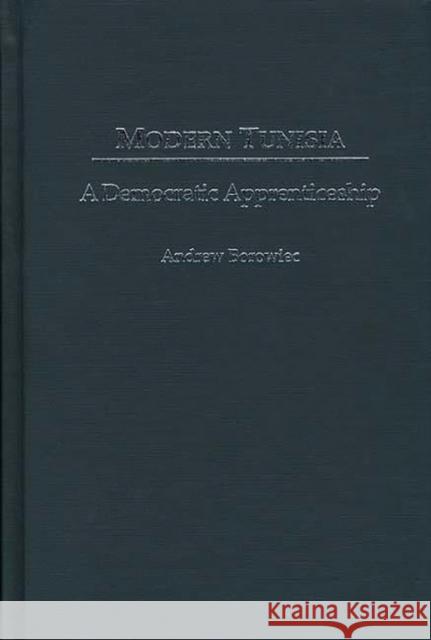Modern Tunisia: A Democratic Apprenticeship » książka
Modern Tunisia: A Democratic Apprenticeship
ISBN-13: 9780275961367 / Angielski / Twarda / 1998 / 176 str.
How did Tunisia succeed in eliminating the threat of militant Islamic fundamentalism? Borowiec examines the actions, which begin with the removal of the senile President Habib Bourguiba in 1987, known in Tunisia as the change. Today, while its next door neighbor, Algeria, is in the midst of an upheaval threatening modernization and a secular government, Tunisia is the only Muslim country to ban polygamy and to introduce state-funded contraception.
Borowiec begins by sketching Tunisia's history from the Phoenician era onward. He provides a detailed analysis of the country's Islamic movement, and then examines the efforts of Bourguiba's successor, Zine El Abidine Ben Ali, to liberalize the economy, foster a Western orientation, and make education accessible to all. Interviews with leading government officials as well as educators, writers, and average Tunisians puts a human face on a process that may allow Tunisia to make the transition to become a young developed nation at the beginning of the next millennium. This book is important to scholars, researchers, and the general public concerned with events in North Africa and the Arab world.











